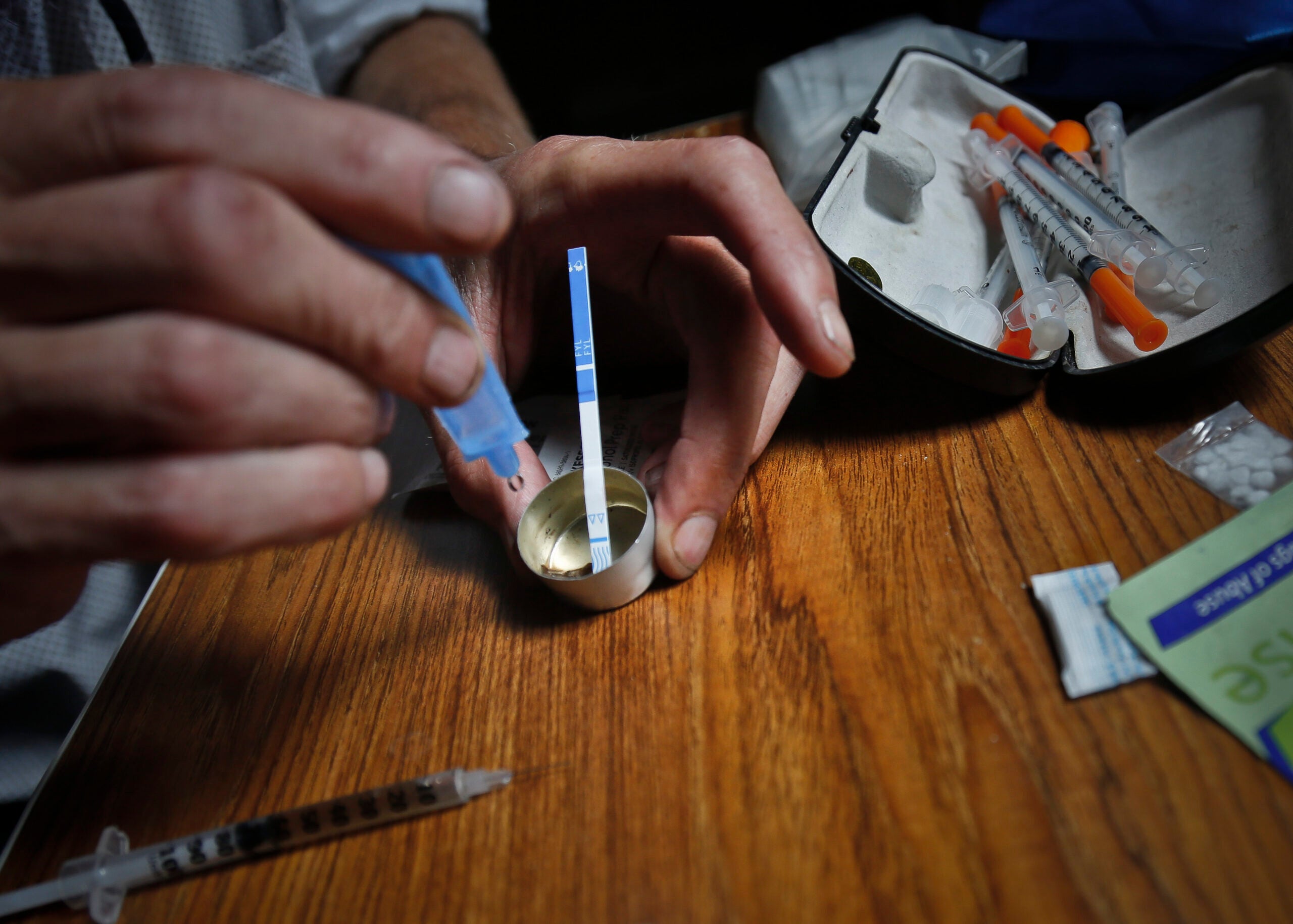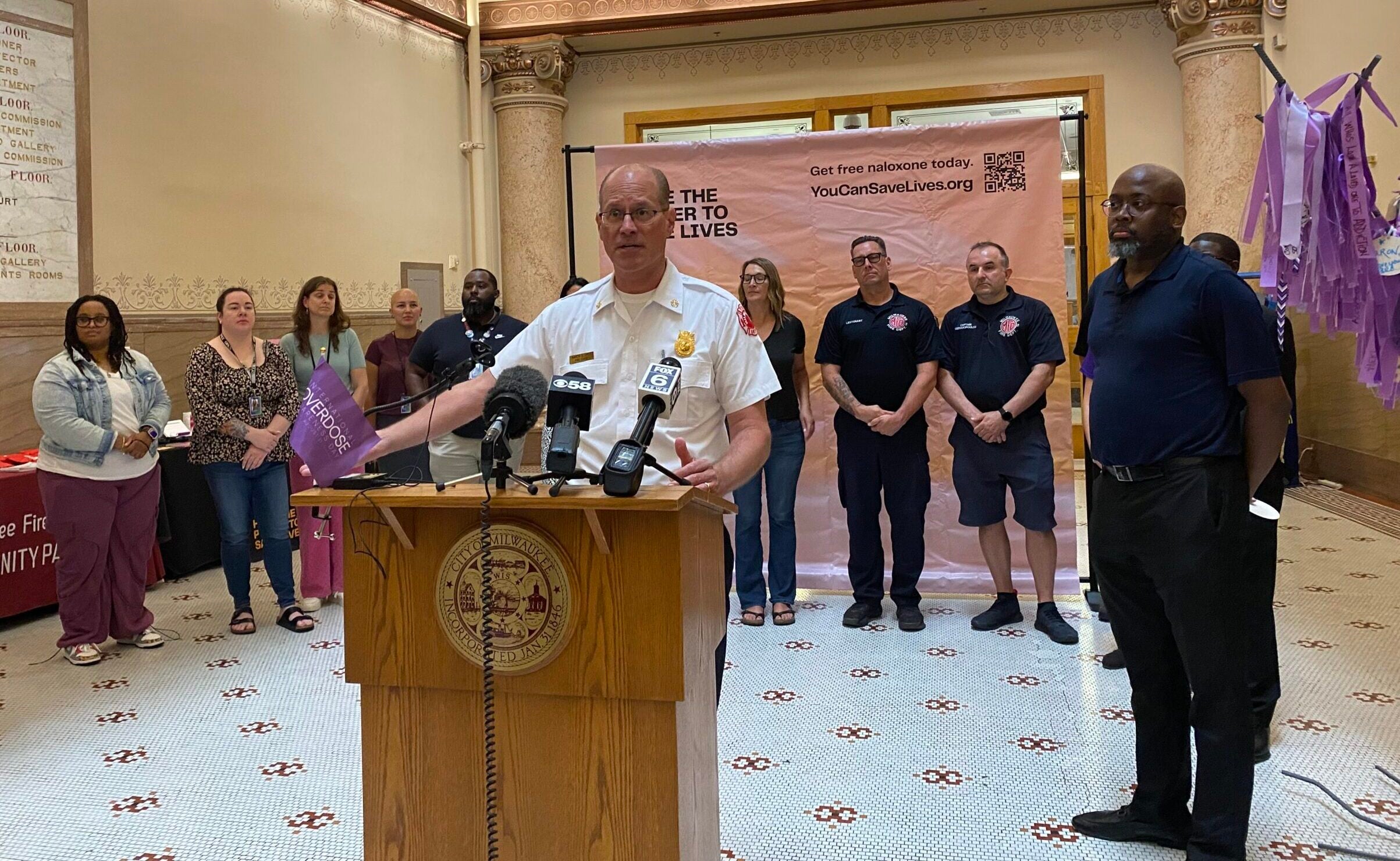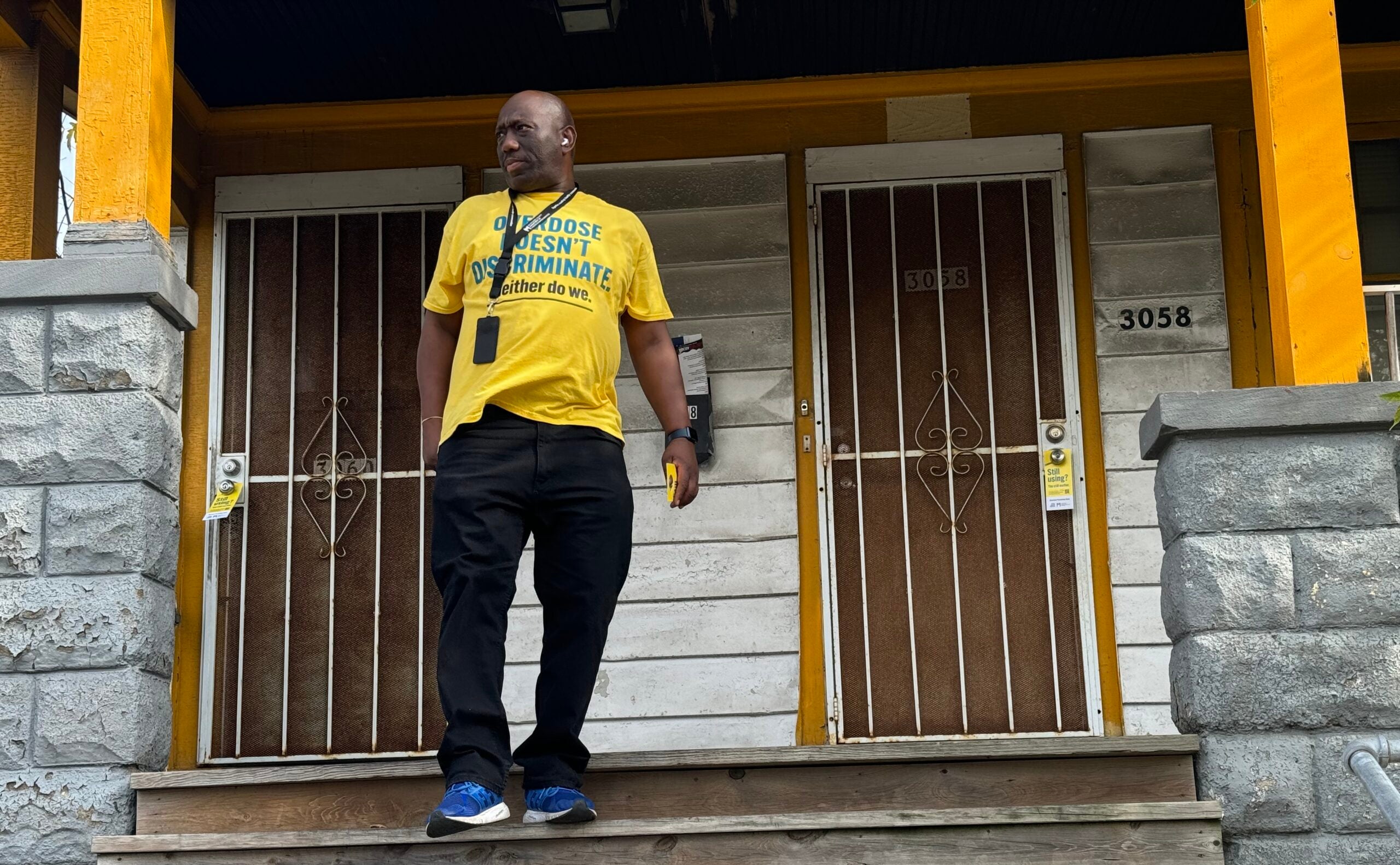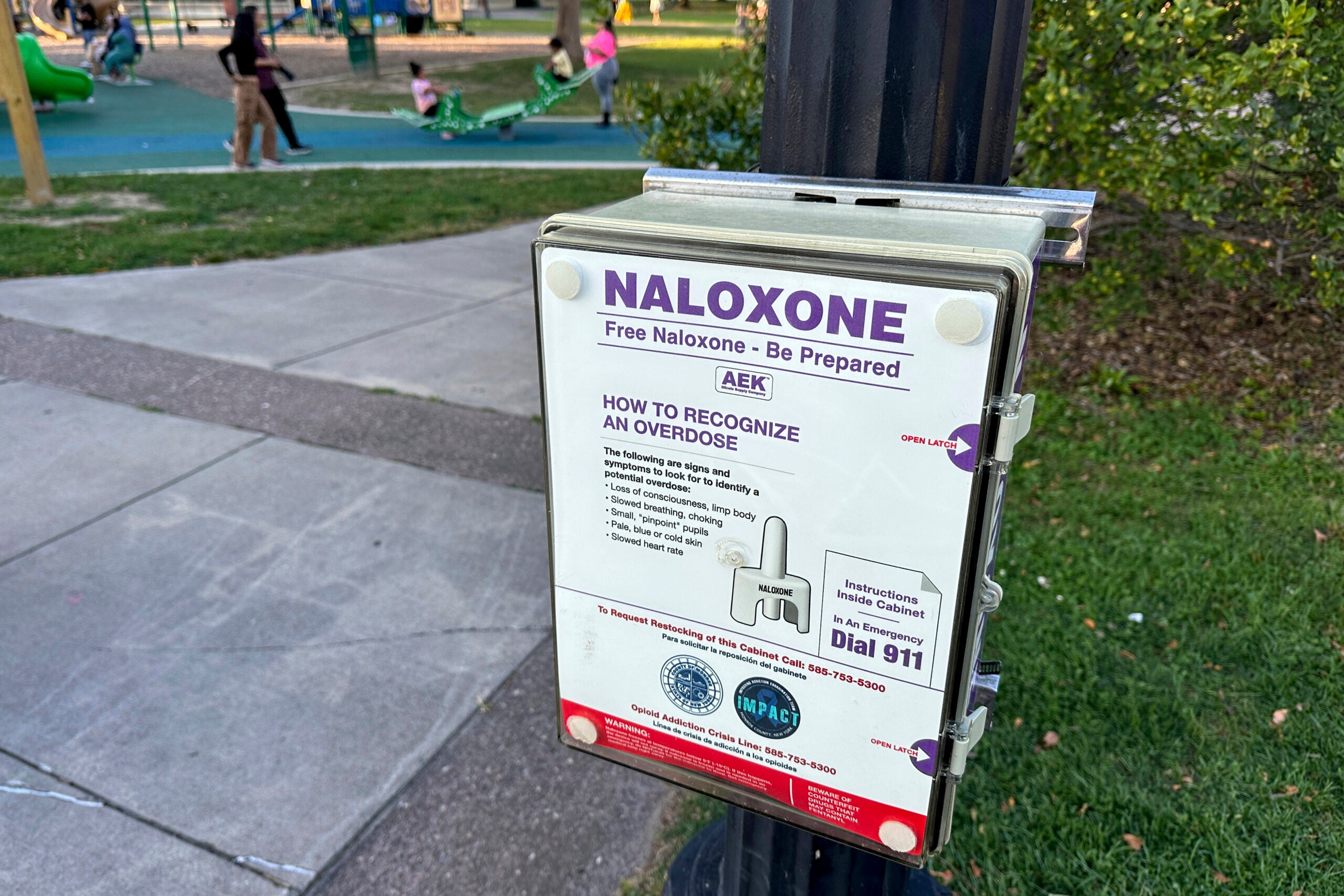While the COVID-19 pandemic has captured the world’s attention, other public health crises have continued to take a toll as well.
The ongoing opioid crisis, while by no means over, has seen some positive strides in recent years. But concerns about major setbacks because of the coronavirus outbreak are high.
In La Crosse County alone, overdose deaths have seen a 63 percent increase so far this year, according to Dr. Chris Eberlein, an emergency physician at Gundersen Health System in La Crosse.
News with a little more humanity
WPR’s “Wisconsin Today” newsletter keeps you connected to the state you love without feeling overwhelmed. No paywall. No agenda. No corporate filter.
“I think that’s really due to a multitude of factors, including the fear, anxiety and depression in everyone in general, especially those that struggle with their mental health issues even prior to the pandemic,” he said.
Those factors coupled with economic losses, social isolation and less access to treatment opportunities like counseling are likely all playing a role in the increased overdoses, Eberlein said.
While it’s too soon to tie a link to the overdose deaths and COVID-19, health care professionals are concerned about there being fewer opportunities to seek out care for substance abuse and people delaying care out of fear of the disease.
Many routine counseling sessions were canceled because of the outbreak, Eberlein said. And while some patients have been able to rely on virtual visits, others, because of costs and technology restraints haven’t had that ability.
“This (year) is a definite change in what we had been seeing,” Eberlein said.
The increase in overdose deaths comes on the tail of a downward trend in La Crosse County, Eberlein said. In 2019, the county saw 22 overdose deaths, following about five years of decline. Statewide, the trend has been similar. In 2018, 1,076 people died from drug overdoses, down from 1,185 in 2017.
Opioids remain the most common cause of all drug-related deaths. In 2019, they made up about 75 percent of the deaths statewide, down from 80 percent in 2016.
Eberlein stressed that despite the COVID-19 pandemic, resources are still available for those struggling with addiction — and the pandemic is not a reason to forgo care.
“People have to realize that you can still seek professional help as you need it,” he said. “If you have a crisis in mental health or addiction, you need to go to emergency care, please don’t hesitate to seek out your emergency department … we can take care of all patients.”
COVID-19 has thrown a lot of curveballs at the medical system, Eberlein said. And there are deep concerns about preventing other patients from not getting the help they need while attention is overwhelmingly focused on COVID-19.
“As clinic visits get back more online, more virtual visits, I think there are opportunities to once again get all these patients seen in a timely manner,” he said.
“These are really vulnerable patients and it’s something that we really have to keep working at to make sure that they don’t fall through the cracks,” Eberlein continued.
Wisconsin Public Radio, © Copyright 2025, Board of Regents of the University of Wisconsin System and Wisconsin Educational Communications Board.







